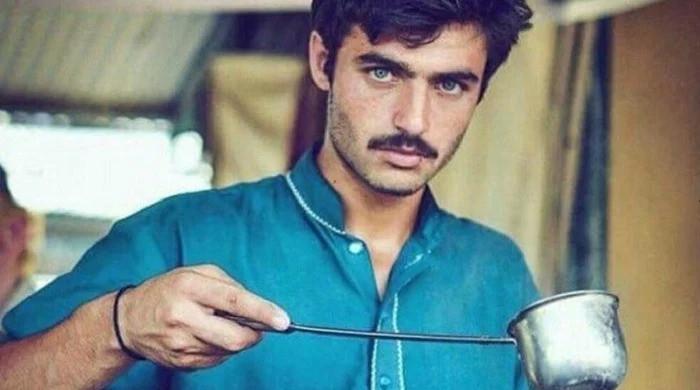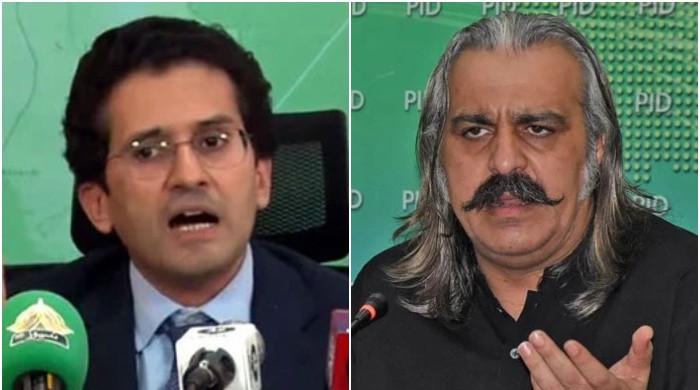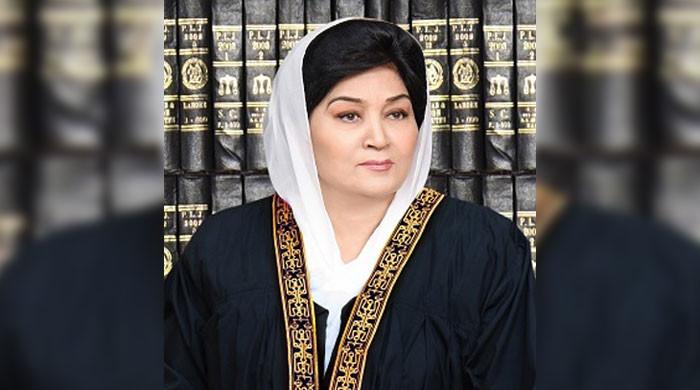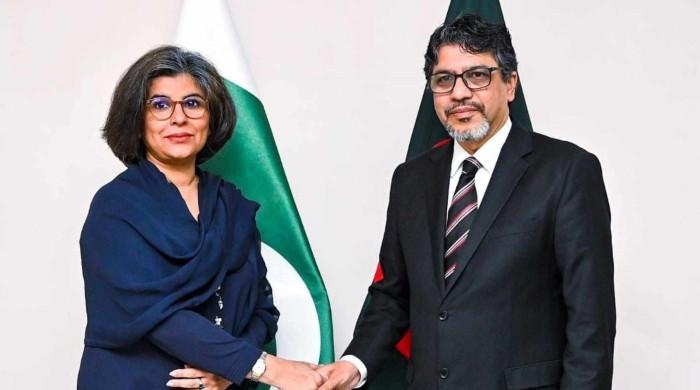One of the brightest flames in qawwali extinguished
Amjad Sabri – a qawwal, Naat Khwan, Manqabat Khwan, loving father and husband and an overall wonderful human being – murdered in cold blood
June 23, 2016
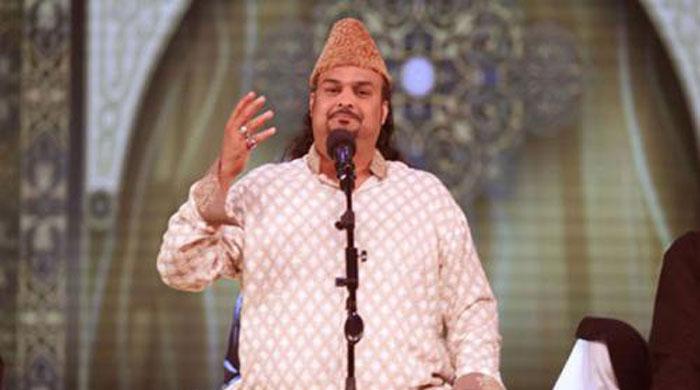
KARACHI: His soul enriching voice, which with all its melody and diversity, was viciously silenced on Wednesday afternoon, yet it would resonate through the memories of peace lovers and music aficionados, just like those of his father and uncle’s have been echoing for decades.
From the legendary Sabri Brothers family, Amjad Sabri lived an iconic life as one of the most celebrated qawwals of the present times, taking his ancestors’ legacy to a whole new level by incorporating modern trends into the traditional heritage of the Subcontinent.
From “Bhar Do Jholi” to “Tajdar-e-Haram” and “Ae Sabz Gumbad Walay”, the last kalam he recited on the day of his murder, the son of legendary Haji Ghulam Farid Sabri left his unique signature in various form of Sufi music - qawwali, naat khwani, manqabat khwani and salam.
“He [Amjad Sabri] was only nine when his father [Ghulam Farid Sabri] started his training in qawwali,” said Adil Mansoor, an audio engineer and close associate of Amjad, told The News over the phone from Madina.
“Amjad made it to the stage first with his father at the age of 12. He, however, started his own band after three years of his father’s demise in 1997.”
Along with his friends and relatives, the 45-year-old qawwal has also left his fans and the artiste community in a state of shock and grief.
Talking to The News, Ustad Mehmood Ali Khan of the Karachi Arts Council said the late qawwal was keeping his family tradition alive.
“A unique feature of his performances was that he successfully engaged the youth in qawwali by adopting modern methods and innovation.”
Khan said artistes were ambassadors of peace and killing them clearly indicated that those responsible for it wanted to disturb peace in the country.
Famous qawwal Badar Nizami said the artiste belonged to a Sufi family, having their links to the Chishti order of spirituality.
“Is praising God, His beloved Prophet (Peace Be Upon Him) and sacred Islamic personalities a crime?” Nizami asked.
“He is a victim of hate. He has fallen prey to those who are the enemies of the Sufism ideology and peace.”
The nephew of Haji Maqbool Ahmed Sabri, the artiste was equally popular in Naat Khwani.
Recalling the slain artiste, TV host Raees Ahmed said he had travelled with Sabri in many parts of the country for Naat Khwani programmes and always found him full of life and with a good sense of humour.
“He always showed great respect toward his seniors. The void left by him is not likely to be filled in the near future.”
Noted Naat Khwan Mehmoodul Hasan Ashrafi said the murder would also have psychological implications on those who were only famous for eulogising the Prophet (Peace Be Upon Him), his family, and companions.
His life
Amjad’s associate Adil Mansoor said that the slain artiste had left behind three sons, two daughters and a wife.
His brother Sarwat Sabri lives in UK, who is arriving in Karachi to attend his funeral ceremony on Thursday (today) at the Furqania Masjid in Liaquatabad. He will be buried at the Paposh Nagar graveyard.
His two other brothers, Azmat Sabri and Talha Sabri, are also qawwals, while his brother Asmat Sabri has passed away.
“Amjad was like a brother. I have been with him since he started his band. He was a helping hand for many, especially the residents of his area. He had no enemies at all.”
The manager of the artiste, Zahid Kanwal, who had been with him for the last 15 years, is in Makkah to perform Umrah.
“Last night I performed tawaf in his name. When I texted him to tell about this, he was extremely happy after knowing this,” he told The News on the phone.
“I didn’t know that this would be his last message. I am still in a state of shock.”
He said the artiste never wanted to leave his ancestral locality, Liaquatabad, which following the news of his death saw scores of people, including singers and actors, gathering to mourn his passing.
As Adil Mansoor, who remained with the iconic artiste since his early days, aptly put it, “Amjad had a deep love and affection for the residents of the area. He not just lived his life among them, but for them. He being assassinated in a locality he cherished till the very end is nothing but cruel irony.”
—Originally published in The News






